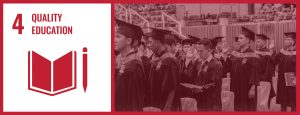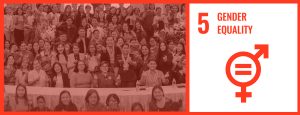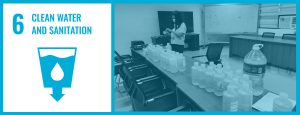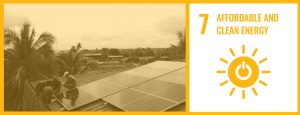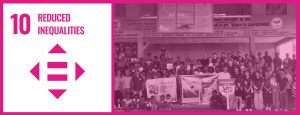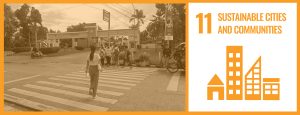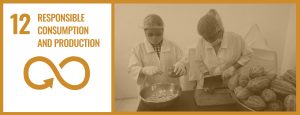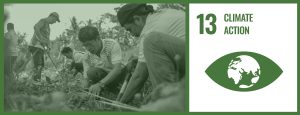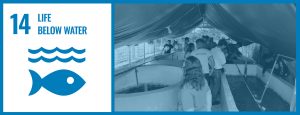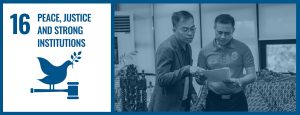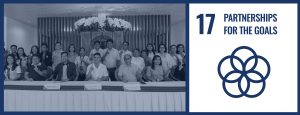2024 Reports | SDG 13 – Climate Action

ENVIRONMENTAL EDUCATION MEASURES
Local Education Programs on Climate
The university as a body provide local education programs on climate change risk, impacts, mitigation, adaptation, impact reduction and early warning systems. For example, The Isabela State University, through its Water Research and Development Center (WReDC), led the kickoff meeting with the Department of Science (DOST), Bulacan State University (BulSU), and National Irrigation Administration (NIA) on June 05, 2024, to formally commence the collaborative work of the said agencies for the implementation of the research project on “Sediment Evaluation and Development of Intervention (SEDI): S&T-Based Approach for Sustainable Management of Reservoirs and River Basins”. The project aims to developed mitigation, adaptation and early warning systems on river basins and dams to fight climate change.
After the program preliminaries, the R&D team for SEDI introduced themselves to foster camaraderie and strengthen their partnership. Afterward, Dr. Lanie A. Alejo, Project Leader of SEDI and Director of WReDC, provided an in-depth overview of the SEDI project, highlighting the problem of sedimentation which needs to be addressed through S&T-based interventions. She further explained the project objectives and framework, research sites, work plan, budget from DOST and its counterparts, and project outputs and impacts.

University Climate Action Plan shared with Local Government
The university as a body have a university climate action plan shared with local government units. ISU-SWIM project’s turnover of Comprehensive Water Resources Management Plan to Batanes province. The long-term strategic document that was turned over by the University outlined the management of the Batanes province water resources. It considered current and future water demands, water supply sources, and the infrastructure needed to meet the demands. In addition, the crafted comprehensive water resources management plan addressed a variety of issues related to the management of water resources including: assessment of water resources, water demand and use, water allocation, water supply and distribution, watershed management, flood and drought management, environmental protection, and integrated water resources management.
With population and climate putting much pressure on water sustainability for crop production, energy generation, and domestic supply, the said R&D Center found that there is much interest to assess water resources in consideration of socio-economic factors, increasing demands from various sectors, expansion of irrigation services, and the effect of climate change.
The long-term strategic document that was turned over by the University outlined the management of the Batanes province water resources. It considered current and future water demands, water supply sources, and the infrastructure needed to meet the demands.
In addition, the crafted comprehensive water resources management plan addressed a variety of issues related to the management of water resources including: assessment of water resources, water demand and use, water allocation, water supply and distribution, watershed management, flood and drought management, environmental protection, and integrated water resources management.

University Participation in Co-Operative Planning for Climate Change Disasters
Isabela State University (ISU), through its Water Research and Development Center (WReDC), collaborates with the Department of Science and Technology (DOST), Bulacan State University (BulSU), and the National Irrigation Administration (NIA) on the research project “Sediment Evaluation and Development of Intervention (SEDI): S&T-Based Approach for Sustainable Management of Reservoirs and River Basins.” Launched on June 5, 2024, the project addresses sedimentation issues affecting dams and river basins through science-based interventions. The initiative involves joint planning, technical training, and data sharing with government agencies and stakeholders to develop sustainable solutions for flood control and water resource management. By leading this multi-agency effort, ISU demonstrates active participation in cooperative planning for climate-related disasters, reinforcing its role in advancing national water security, climate resilience, and sustainable resource governance.
Inform and Support Government: Local Climate Change Early Warning and Monitoring
The project SSC-CIS south-south collaboration on Climate information services, the ISU was designated as the location of the Sun-national Competence Center for Climate Information system for Agriculture and fisheries. This subnational competence center aims to provide local and national support in government and private stakeholders for the collection, data base, and use of climate information. This action further helps the community to monitor and improve risk early warning systems.

With the launching of the center, the University is enabled to act as a central hub for consolidating expertise and resources related to climate information and services. The SNCC will provide government agencies, farmers, and fisherfolk with crucial climate data to address climate challenges effectively.
As part of this initiative, ISU, together with the University of the Philippines Los Baños Foundation, Inc. (UPLBFI) through the UPLB Interdisciplinary Studies on Integrated Natural Resources Management (UPLB-INREM) are implementing the “Modelling CIS Application in the Agriculture and Fisheries Sector Through Tripartite Collaborations in Region II, Northern Philippines” project. This project aims to develop a framework that enhances tripartite capacities and boosts the resilience of farming and fishing communities.
Environmental Education Collaboration with NGO on Climate Adaptation
Yes, the university as a body collaborate with NGOs on climate adaptation. ISU forges partnership with Tanggol Kalikasan Inc. to establish Institute of Environmental Governance (IEG). Established in 1987 as an environmental law program of Haribon Foundation, Tanggol Kalikasan Inc., aims to facilitate the empowerment of communities and key institutions to manage their ecosystem using law and other creative mechanisms. One of these is their capacity-building program that covers support for environmental law enforcement and constituency building and organizational development.
ISU is expected to contribute to the said capacity-building program through the supplication of two (2) members to join the IEG Management Committee as well as faculty members that will serve as core members of the institute through their theoretical and practical aspects of environmental governance.
“Considering the expertise of the different campuses, I hope that with this partnership that we have, Isabela State University can fully share in protecting our environment and of course in promoting these kinds of goals,” Dr. Aquino said as he expressed his hopes with the partnership.
Currently, there are twenty-eight (28) IEG Centers in the Philippines (18 Luzon, 3 Visayas, and 6 Mindanao) which facilitates the three (3) levels of the program which includes mentoring, coaching, legal clinic, monitoring and evaluation after the IEG Environmental Governance Training.
For more context, the IEG establishment is part of the Environmental Justice Sector Reform Project (EJSRP) Phase 3 with the coastal areas of Isabela as one of its focus areas which aims to build the capacity of the LGUs in order to uphold environmental justice through environmental governance.






